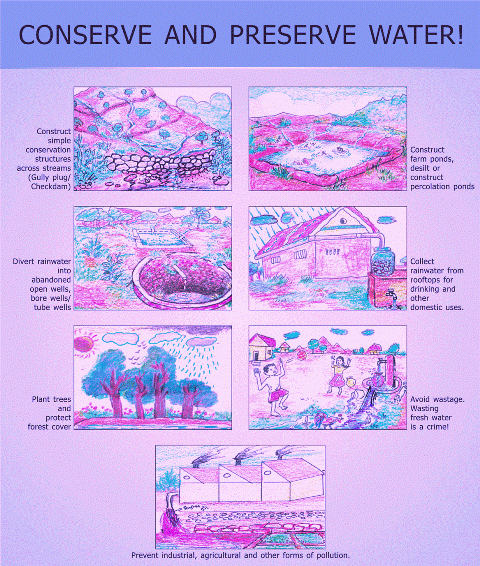By Sujoy Dhar, IANS
Source: http://www.indianmuslims.info/news/2007/dec/16/andaman_tsunami_victims_cope_tardy_rehabilitation.html
Port Blair : They came back from the jaws of death when the devastating tsunami devoured their habitats three years ago. But for thousands of survivors in makeshift camps in the Andamans, the process of rebuilding a life torn asunder remains incomplete.
In the makeshift tenements of tsunami victims around the Andaman and Nicobar Islands capital Port Blair, resentment is brewing even as apparently shiny and quakeproof houses are getting ready for the victims.
The victims are protesting the tardy progress of relief work, including the construction of the houses, and inadequate support for their livelihood.
On Dec 26, 2004, the Andaman and Nicobar archipelago suffered massive destruction when one of the fiercest tsunamis struck the islands after a severe earthquake, killing at least 3,513 people besides wiping out villages and ruining farmlands.
Impatient over the delays, Apparao, in his 30s, gives vent to his anger before government officials and visiting dignitaries in one of the camps at Bamboo Flat, an island just 10 minute ferry ride from Port Blair.
"We have been living in temporary shelters for the past 19 months. We have not yet got the houses. The hardship we face every day is immense," an agitated Apparao told IANS right in front of the relief commissioner.
"The ration is not enough. We have not got rice for the past three months," he said as more camp inhabitants joined the chorus of protest.
Another victim, Banu, a photographer from Nicobar, is nearly jobless since the tsunami destroyed his habitat forcing him to live in a relief camp in Andaman.
Banu did manage to open a photo studio at Bamboo Flat but there are simply no visitors to his shop.
"I have virtually no employment. I have college-going children and only I know how each day passes," Banu said.
"The houses have not yet been delivered," he said.
"It is sheer laziness of the government which delayed our project. The slow progress makes us impatient. If they had wanted they could have delivered earlier," Banu said.
Andaman and Nicobar Relief Commissioner Dharam Pal admitted the delay but attributed it to the failure of NGOs, which had over-committed themselves.
"The relief phase is now over. We are now in the final phase of rehabilitation. We started constructing in 2006 and are now almost nearing completion in 2007. The first batch is ready for handing over to the victims.
"NGOs had committed 2,500 houses but they can now only deliver 709. They were given the task in south Andaman. They found it difficult to construct," Dharam Pal said.
"The costs are high in the islands, which the NGOs had not foreseen initially. Everything has to be brought from the mainland. A cost of Rs.500,000-600,000 can go up to Rs.1.1 million in Car Nicobar. The average cost of the house is Rs.900,000," Pal said.
"In places like Great Nicobar it is very difficult to construct since you don't even have access all the time. You have to wait for good weather conditions and go in a dingy. The sea condition there is so rough. Moreover, there is no harbour, no beach, nothing," he said.
But several of the victims in Andaman want to build their own house and have demanded the money.
"Give us money instead of building houses in places where we don't want them. If they give us money we can build our houses for much less and spend the rest for starting small business since we have lost everything in the tsunami," said 45-year-old Harichand Roy at the Namunaghar shelter in Port Blair.
But Dharam Pal said such demands are impractical.
"We cannot give them money. Because they would spend the money on liquor as we have found in many families who got monetary compensation. Also, this time we are building houses which are earthquake resistant," he said.
Andaman's noted tribal expert Samir Acharya, who runs the NGO named Society for Andaman and Nicobar Ecology (SANE) and acts as the spokesman of the Nicobarese community, is critical of the government policy as well.
"Any fool can say that the construction is delayed. Ideally they should not have built 70 percent of the houses.
"If you go by records, you will find Nicobar houses were inherently earthquake resistant. They get 100 earthquakes every year but because of low density of population there was never too much human loss," he said.
"The houses we are building have been vetted by IIT Chennai. Also remember that the tribal population in Andaman is only eight percent of the population.
"The houses we are building here is like a model for India," he said.
While the NGO-government spat continues, in the Andamans the sufferers continue to be the tsunami victims whose life, since the natural disaster, has become a jigsaw of broken pieces they are yet to put together.
Source: http://www.indianmuslims.info/news/2007/dec/16/andaman_tsunami_victims_cope_tardy_rehabilitation.html
Port Blair : They came back from the jaws of death when the devastating tsunami devoured their habitats three years ago. But for thousands of survivors in makeshift camps in the Andamans, the process of rebuilding a life torn asunder remains incomplete.
In the makeshift tenements of tsunami victims around the Andaman and Nicobar Islands capital Port Blair, resentment is brewing even as apparently shiny and quakeproof houses are getting ready for the victims.
The victims are protesting the tardy progress of relief work, including the construction of the houses, and inadequate support for their livelihood.
On Dec 26, 2004, the Andaman and Nicobar archipelago suffered massive destruction when one of the fiercest tsunamis struck the islands after a severe earthquake, killing at least 3,513 people besides wiping out villages and ruining farmlands.
Impatient over the delays, Apparao, in his 30s, gives vent to his anger before government officials and visiting dignitaries in one of the camps at Bamboo Flat, an island just 10 minute ferry ride from Port Blair.
"We have been living in temporary shelters for the past 19 months. We have not yet got the houses. The hardship we face every day is immense," an agitated Apparao told IANS right in front of the relief commissioner.
"The ration is not enough. We have not got rice for the past three months," he said as more camp inhabitants joined the chorus of protest.
Another victim, Banu, a photographer from Nicobar, is nearly jobless since the tsunami destroyed his habitat forcing him to live in a relief camp in Andaman.
Banu did manage to open a photo studio at Bamboo Flat but there are simply no visitors to his shop.
"I have virtually no employment. I have college-going children and only I know how each day passes," Banu said.
"The houses have not yet been delivered," he said.
"It is sheer laziness of the government which delayed our project. The slow progress makes us impatient. If they had wanted they could have delivered earlier," Banu said.
Andaman and Nicobar Relief Commissioner Dharam Pal admitted the delay but attributed it to the failure of NGOs, which had over-committed themselves.
"The relief phase is now over. We are now in the final phase of rehabilitation. We started constructing in 2006 and are now almost nearing completion in 2007. The first batch is ready for handing over to the victims.
"NGOs had committed 2,500 houses but they can now only deliver 709. They were given the task in south Andaman. They found it difficult to construct," Dharam Pal said.
"The costs are high in the islands, which the NGOs had not foreseen initially. Everything has to be brought from the mainland. A cost of Rs.500,000-600,000 can go up to Rs.1.1 million in Car Nicobar. The average cost of the house is Rs.900,000," Pal said.
"In places like Great Nicobar it is very difficult to construct since you don't even have access all the time. You have to wait for good weather conditions and go in a dingy. The sea condition there is so rough. Moreover, there is no harbour, no beach, nothing," he said.
But several of the victims in Andaman want to build their own house and have demanded the money.
"Give us money instead of building houses in places where we don't want them. If they give us money we can build our houses for much less and spend the rest for starting small business since we have lost everything in the tsunami," said 45-year-old Harichand Roy at the Namunaghar shelter in Port Blair.
But Dharam Pal said such demands are impractical.
"We cannot give them money. Because they would spend the money on liquor as we have found in many families who got monetary compensation. Also, this time we are building houses which are earthquake resistant," he said.
Andaman's noted tribal expert Samir Acharya, who runs the NGO named Society for Andaman and Nicobar Ecology (SANE) and acts as the spokesman of the Nicobarese community, is critical of the government policy as well.
"Any fool can say that the construction is delayed. Ideally they should not have built 70 percent of the houses.
"If you go by records, you will find Nicobar houses were inherently earthquake resistant. They get 100 earthquakes every year but because of low density of population there was never too much human loss," he said.
"The houses we are building have been vetted by IIT Chennai. Also remember that the tribal population in Andaman is only eight percent of the population.
"The houses we are building here is like a model for India," he said.
While the NGO-government spat continues, in the Andamans the sufferers continue to be the tsunami victims whose life, since the natural disaster, has become a jigsaw of broken pieces they are yet to put together.






No comments:
Post a Comment